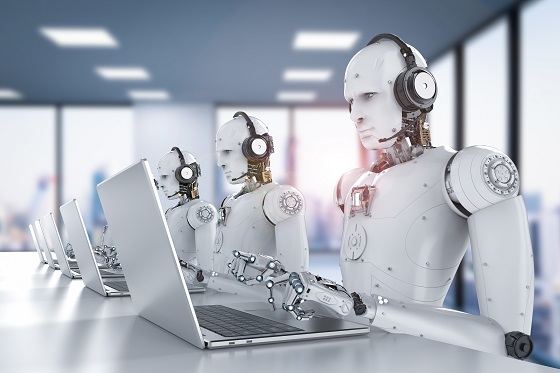
Bill Gates doesn’t understand why people aren’t more worried about AI. Stephen Hawking reckoned AI “could spell the end of the human race.”
Elon Musk said, “With artificial intelligence we are summoning the demon. In all those stories where there’s the guy with the pentagram and the holy water, it’s like yeah he’s sure he can control the demon. Didn’t work out.”
But what do ordinary people think? Pew Research has the answers to that question. Back in 2018, they asked nearly one thousand experts, developers, activists, and researchers to share their concerns about artificial intelligence. More recently, they asked a broader audience.
Here are the issues they had on their minds:
Loss of human agency
One broad concern is that AI could lead to an overall loss of control over our lives. Millions of us communicate mostly with the people Facebook picks out for us. Plenty of us already let Netflix’s algorithm decide what we’re going to binge watch on Friday nights. Early adopters let Alexa pick their outfits every morning. In the factory, we’re working hard to bring data into automated decision making about repairs and resource allocation.
At some point, will we give up independence and privacy to an extent that lessens our control over our lives? Will we ultimately choose convenience over power?
Data abuse
“Values and ethics are often not baked into the digital systems making people’s decisions for them,” Pew Research points out. Increasing quantities of data are being collected, often without clear plans for using that data. Your factory’s sensors may just be getting ready to tell you which valve is getting ready to wear out, but what about the weather app on your phone that sells your current location to advertisers?
What about profiling data used by police departments, targeted political disinformation through social media, or data brokers selling mailing lists of police officers’ home addresses or of domestic abuse shelters? The possibilities of data abuse are already broad and they grow daily.
Job loss
Many Americans worry that they will lose their jobs to robots. Beyond this concern, there are connected consequences. For example, AI takeover of low-skilled jobs could broaden the divide between the haves and the have-nots, increasing political and social discord.
Income inequality, already an issue in the United States, could increase in this case. There could be political consequences. There could also be an increase in the numbers of people who are unemployed or underemployed.
We are not at all convinced that AI will cause job losses. But many people expect it.
Dependence
Many of us no longer know our friends’ and family members’ phone numbers. We just say, “Call Biff” and let our phones take care of it. We may also rely on Facebook to remind us of our friends’ birthdays, automated software to prepare our tax returns, and map apps to navigate for us while we drive.
What if we lost the ability to do all those things for ourselves? True, most of us have already lost the ability to grow and cook our own food, make our own clothes and furniture, and handle simple home and auto repair. We don’t lose any sleep over that so we may not mind more losses in basic skills.
Mayhem
This is the stuff that turns up in science fiction. Armed robots, autonomous weapons, cybercrime and automated wars — this is what could happen when good AI turns bad.
People in the know also worry about cyberterrorism, interference in elections, and hacking into government systems.
Industrial consequences?
Are these five more reasons to hold off on AI in your industrial settings? No worries. We can keep your legacy Rexroth drive and control systems running for the foreseeable future. Maybe they’re smart enough. Call for immediate assistance.
